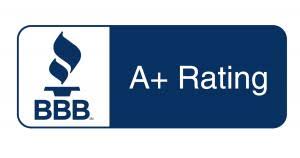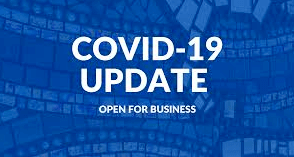These are the steps you should take to improve your credit faster after filing bankruptcy
1. PAYING EXISTING SECURED DEBT ON TIME
If you have a mortgage, car loan payment, or car lease, it is extremely important that you make the payments on time each month. Obviously, if you want to keep the asset, the payments must be made. However, there is a big difference between simply making the payments soon enough to protect the home from foreclosure or car from repossession, and making the payment early enough that it positively influences your credit report.
You should always make the required payment prior to the due date. If you cannot, at least be sure to make the payment within 30 days of the due date. This is because any payment made within 30 days will be reported as “on time” on your credit report. Any payment made after 30 days (even one day) may be reported as 30 days delinquent. Your credit rating will start to improve even if you do nothing after the bankruptcy filing. However, if you start to fall behind again on secured payments, your credit score could actually go down due to the new negative information related to the late post-bankruptcy payments. Of course, not everybody has a mortgage or car loan when they file bankruptcy, but for those people with one or more of these loans, paying the loans on time will help boost your credit score.
2. OBTAIN SECURED CARDS (AND PAY THEM IN FULL EACH MONTH)
While we strongly encourage you to avoid getting yourself into credit card debt, there is a big difference between owning a few credit cards and actually getting yourself into debt. It is perfectly reasonable for you to use a credit card when you go to the grocery store or purchase something online. However, the key is to make sure that you pay the bill in full as soon as you receive it each month. While it is unlikely that you will be able to obtain any unsecured credit for a year or two after the bankruptcy filing, you should have no problem at all being approved for one or more secured credit cards. The reason for this is simple. A credit card company or bank issuing a secured credit card does not take much of a risk because you have to post a security deposit which is equal to the amount of the credit line. If you pay the account on time each month, the creditor may increase your credit line without requiring that you post any additional security deposit. They may also refund the security deposit to you in full.
Most secured credit cards do carry high annual fees, and in some cases, even monthly fees. However, we still encourage you to obtain at least two of these accounts. We also encourage you to use them periodically and, as indicated above, to pay the balance in full. Your payment history on a secured credit card will appear on your credit report, and this should provide a significant boost to your credit score. If you carry balances on the accounts, the improvement on your credit score may not be as significant because there are actually three aspects (and probably more) as to how a credit reporting agency reviews the use of credit card debt. The three aspects are as follows:
1) The total amount of your credit lines. The higher your credit lines, the more favorably your unsecured credit profile is viewed by the credit reporting agencies. Obviously, it is going to be some time until you have significant credit lines, but even if you build up lines of a few thousand dollars, this should help.
2) Your payment history. As with car loans and mortgages, you must pay your credit card bills on time every month. Whether you pay them in full or just in part, the credit reporting agency will show the payment as an “on time” payment.
3) Your available credit ratio. Although it will certainly help your credit score if you have credit cards that are paid on time, it is also very important that you not utilize too much of the credit line. In recent years, the credit reporting agencies have started to give more weight to the ratio between the total credit line and the available credit line. For example, if you have $5,000 in credit lines and you owe $4,500, you may be viewed as a poor credit risk because of your dependence on the unsecured credit. On the other hand, if you only owe $500 against the same $5,000 in credit limits, then the reporting agencies will correctly assume that you are using your credit in a responsible way and that you are not getting yourself into more debt than you can afford to pay.
So, paying your credit card bills in full each month is not only good for your financial well being but is also very good for your credit score.
3. STRAIGHTEN OUT STUDENT LOANS
It is becoming increasingly more common to meet clients who have student loans that are in default when they file the bankruptcy case, and, as I explained earlier, student loans are not dischargeable in a bankruptcy except in a very small percentage of cases.
Even if you are not being hounded by the student loan company to make up these delinquent payments, remember that all student loans (or at least most) are reported to the credit reporting agencies each month. Therefore, if your student loan is in default, it will continue to show on your credit report as a default until either you catch up on the payments or negotiate some new arrangement with the student loan company.
Student loan companies can be quite flexible in negotiating with people that are in bankruptcy or about to exit a bankruptcy case. During the actual bankruptcy process, even student loan companies cannot pursue you for payment. However, as soon as the bankruptcy is concluded, collection activity can resume. We always recommend that a client that has a defaulted student loan attempt to work out a new payment arrangement with their student loan company as soon as they file the bankruptcy. Many times the lender will show much more flexibility to a client in bankruptcy than one who is not.
The goal is to reach a settlement with the student loan company that will “re-age” the account in such a way that it starts to show as being paid on time on your credit report. You may be able to work out a deferment on the student loan with positive credit reporting. You may also be able to work out an “income sensitive” repayment that ties your monthly payment to your income. Any deal that you can strike with the student loan company will help you not only in avoiding aggressive collection action down the road, but also in improving your credit score by turning the default status into an on-time status.
Do not ignore the status of your student loans. They are just as important to your credit as most other types of debts, and with a little hard work, you will probably be able to work out a deal that is satisfactory to both you and the student loan company. PAY ALL NEW DEBTS ON TIME
Even a small, unpaid medical bill or utility bill can cause significant damage to your credit rating. Generally, only certain types of debts appear on your credit report when they are being paid on time. The main debts are: mortgages, car loans, credit cards and student loans. Utility companies and other household expense creditors do not report your monthly activity to the credit reporting agencies. However, an unpaid utility bill or medical bill often ends up in the hands of a collection agency. This may well get reported on your credit report by the collection agency. Even a $30 parking ticket can eventually end up as a collection item on your credit report, and this can do significant damage to your credit report. It is very common for people to let medical bills “sit around” for a few months and pay them only when the creditor starts becoming more aggressive or turns it over to a collection agency. While, of course, it is a good thing to pay the debt, paying it after it has already been turned over to a collection agency may be too late to reverse the credit damage. Once the item has been added to your credit report, some credit damage will remain.
4. DON’T APPLY FOR CREDIT TOO OFTEN
Obviously, if you need to apply for a mortgage or car loan, you should go ahead and do so. However, do not submit the application until you are absolutely certain that you are ready to make the purchase. The credit reporting agencies penalize people for applying for credit too often. This is probably because the agencies feel that people who are applying for credit regularly are attempting to live beyond their means and may be incurring debts that they cannot really afford to pay.
You will probably not be penalized if you apply for the same type of credit in a very short period of time. For example, if you submit credit applications to three separate banks for an automobile loan within a couple of days, this is likely to be treated as only one credit inquiry. However, if you apply for the same car loan once a month for three separate months, this will definitely impact your credit.
5. GET A CO-SIGNER
It is actually easier than most people think to obtain automobile loans and even mortgages after the filing of the bankruptcy case. Typically, people have to wait until about two years after the bankruptcy discharge to qualify for most secured loans. However, there is no question that the interest rate paid by a person with a recent bankruptcy on their credit report will be much higher than the rate paid by somebody with good credit. This is where a co-signer can make all the difference.
Not only will a co-signer make it more likely that the loan will be approved, but it will also help you to obtain much better terms than you might otherwise receive. The creditor will likely base the interest rate on the co-signer’s credit rather than yours. This is because they know that the co-signer is likely to pay the debt even if you do not. Of course, you should not ask anyone to co-sign a debt if you are not absolutely certain that you will be able to make payments. However, most people are able to convince a family member or a friend to co-sign a debt, and if you are fortunate enough to have somebody to help you in this capacity, do not be shy about asking them. It will cost them absolutely nothing, but it will save you potentially hundreds or thousands of dollars in interest charges, and it will positively impact your credit report if the obligation is paid on time.
6. BECOME AN AUTHORIZED USER ON SOMEONE ELSE’S CREDIT CARD
If you are an authorized used on someone else’s credit card, it is probable that the credit card company will start to report the payment status of the account on your credit report. Technically, as an authorized user, you are assuming responsibility for any charges that you actually incur on the account. As a result, it is common practice for the credit card companies to report the monthly payment activity on the account on your credit report. It may not necessarily matter whether you actually use the account, though using it and paying it off each month could help. Simply having the account in your name is sufficient.
There are a few caveats to keep in mind. First, not all credit card companies will report the activity of an authorized user’s card. You should probably have the main card holder check with their credit card company on this issue before they go through the trouble of adding you to the account.
Second, you should be certain that the person who owns the account is in good standing with the credit card company. Any missed payments by the principal card holder could appear on your credit report. Also, if the main card holder misses any payments, this could be reported on your credit report as well. There are obviously risks for both the main card holder and the authorized user. Obviously, the main card holder must have sufficient trust in the authorized user to place him/her on the account, knowing that they will be responsible for any unpaid charges incurred by the authorized user. By the same token, the authorized user must trust the main card holder to keep the account in good standing.
Third, it is important that you do not add yourself as an authorized user on any credit card account that is already “maxed out.” Remember, even if a credit card account is paid on time, the credit reporting agency will heavily weigh the amount of debt against the available credit. It is extremely helpful to your score to show a large credit line with very little of the line being utilized. It is not helpful to show a credit line with no available credit.
If you have a family member or friend that is willing to assist you as an authorized user, it is important that you discuss all of these issues with him or her beforehand. It only makes sense to become an authorized user if you are certain that the primary card holder is using their credit in a responsible manner and you have no reason to believe that the situation is going to change in any dramatic way in the future.







